Panel: Moving to Midscale
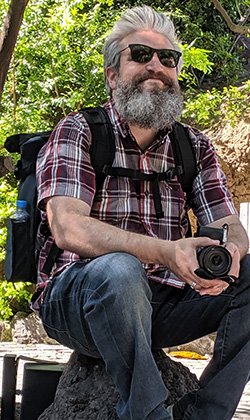
Robert Ricci (panel moderator)
University of Utah; CloudLab
Robert Ricci is a Research Associate Professor in the Kahlert School of Computing at the University of Utah, and one of the directors of the Flux Research Group. He earned a PhD from the University of Utah in 2010 (advised by Jay Lepreau and Sneha Kasera), and an Honors BS from the same institution in 2001.
He works in infrastructure: the systems underneath the software and services that we use everyday. He has published in operating systems, networking, distributed systems, cloud computing, and more. He is also interested in the security of those systems, because concerns of security and privacy need to be built into infrastructure from the ground up. Infrastructure is a very empirical field, requiring lots of implementation and experimentation, so he is also interested in experiment design and analysis, and in building testbeds for research; he has worked on Emulab and its successors, including CloudLab, parts of GENI, and POWDER, since 2000. One of the fundamental parts of the research process is building on and comparing to existing systems, so he also works in research reproducibility.
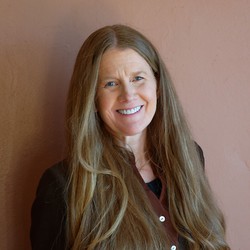
kc claffy
UC San Diego, Center for Applied Internet Data Analysis;
MSRI project: Glocal Measurement Infrastructure to Improve Internet Security (GMI3S)
kc has been studying various Internet research topics since 1990, spanning topology, routing, traffic, economics, and policy. In 1993 she co-authored her first paper on proposed traffic management approaches to deal with congestion, in a paper entitled Mitigating the Coming Internet Crunch. In 1994 she published her doctoral dissertation on Internet traffic characterization, using public NSFNET traffic data. She established her research career, and a leading organization, in pursuit of rigorous analysis of the best available empirical data to inform our understanding of the Internet as a complex system. This pursuit often required developing measurement instrumentation to gather data on the public Internet infastructure. A central focus of her contribution is infrastructure for data collection, curation, management, and sharing, including governance models and ethical frameworks to support study of the Internet’s core infrastructure, focused on the health and integrity of the Internet routing, addressing, and naming systems.
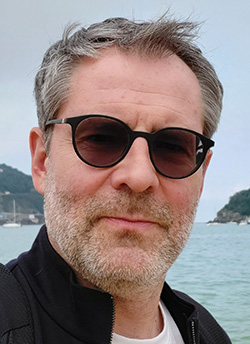
Andrey V. Kanaev
Office of Advanced Cyberinfrastructure, NSF
Dr. Kanaev serves as a permanent Program Director at National Science Foundation (NSF) Office of Advanced Cyberinfrastructure, Alexandria VA. In this role, he is responsible for nationwide development of HPC cyberinfrastructure, development of advanced computing programs, and implementation of Computer and Information Science and Engineering (CISE) Directorate’s infrastructure projects. Prior to joining NSF, Dr. Kanaev served as a Science Director at the US Office of Naval Research Global, London UK, where his duties included searching for innovative international S&T and establishing relationships with scientific research communities across Europe, the Middle East, and Australia. His research experience was gained during service as a scientist at the US Naval Research Laboratory, Washington DC; the University of North Carolina Charlotte, Charlotte NC; Polymath Inc., Pleasanton CA; and Corning Inc., Corning NY. Dr. Kanaev received his PhD and MS degrees in plasma physics from the University of Rochester, Rochester NY in 2002 and 1997, respectively; he received his MS degree in Solid State Physics and BS degrees in Physics from the Moscow Engineering Physics Institute (National Research Nuclear University), Moscow Russia in 1993 and 1991, respectively.
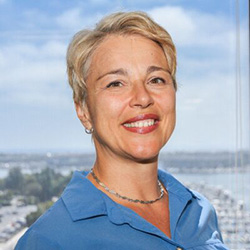
Jelena Mirkovic
University of Southern California, Information Sciences Institute
Jelena Mirkovic is Principal Scientist at USC/ISI and research associate professor of Computer Science at USC. During her professional career she published more than 100 conference and journal papers, and the first book on the denial-of-service attacks. She also pioneered use of testbeds in cybersecurity education. Her research interests span networking, security and education. Her current research is focused on denial-of-service attacks, phishing, user authentication, user privacy and cybersecurity education. She leads the Security and Privacy Heterogeneous Environment for Reproducible Experimentation (SPHERE) project and the Community Labeling and Sharing of Security and NEtworking Test datasets (CLASSNET) project, and she helps with the Sharing Expertise and Artifacts for Reuse for Cybersecurity Community Hub (SEARCCH) project.
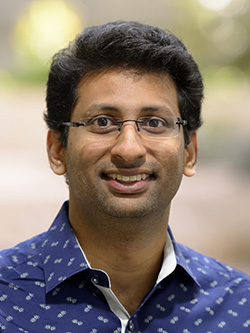
Raj Sankaran
Northwestern University; Argonne National Laboratory
Raj Sankaran is Fellow at Northwestern University and Principal Specialist, Computer Science, at Argonne National Laboratory's Mathematics and Computer Science division, where he co-leads the Waggle AI@Edge group. His expertise encompasses edge computing, embedded computing, cyber-physical systems, and data aggregation, management and analysis. Raj is the platform architect for the NSF funded Sage project and was the engineering lead for the NSF funded Array of Things project.
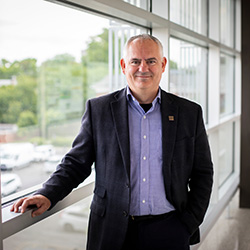
W. Brent Seales
University of Kentucky
Dr. W. Brent Seales is the Stanley and Karen Pigman Heritage Science Chair and Professor of Computer Science at the University of Kentucky (UK). He has been a Visiting Scientist with the Google Cultural Institute in Paris, and a Scholar in Residence at the Getty Conservation Institute in Los Angeles. He is a recipient of the UK Alumni Association’s “Great Teacher” award, UK’s “Research Professor” designation, and the Southeastern Conference (SEC) Faculty Achievement Award.
Dr. Seales’ research program now centers on computer vision, artificial intelligence, and visualization applied to challenges in Heritage Science. One specific focus of his work is the digital restoration of badly damaged artifacts, especially those containing writing. His research produced the discovery and revelation of the Hebrew text of Leviticus from within the Scroll from En-Gedi. The text was revealed non-invasively without physically opening the damaged parchment of the scroll, proving it to be one of the oldest known copies of the Levitical text. Seales’ work in developing “virtual unwrapping” has led to numerous other applications and research efforts, helping to inspire a new generation of innovation and creativity in Heritage Science.
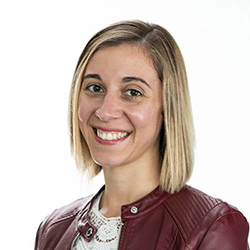
Bryttany Todd
Renaissance Computing Institute (RENCI) at the University of North Carolina at Chapel Hill
Bryttany Todd is a Research Project Manager and an operations program manager at RENCI. She currently manages several RENCI projects and programs including FABRIC and RENCI’s student internship program.